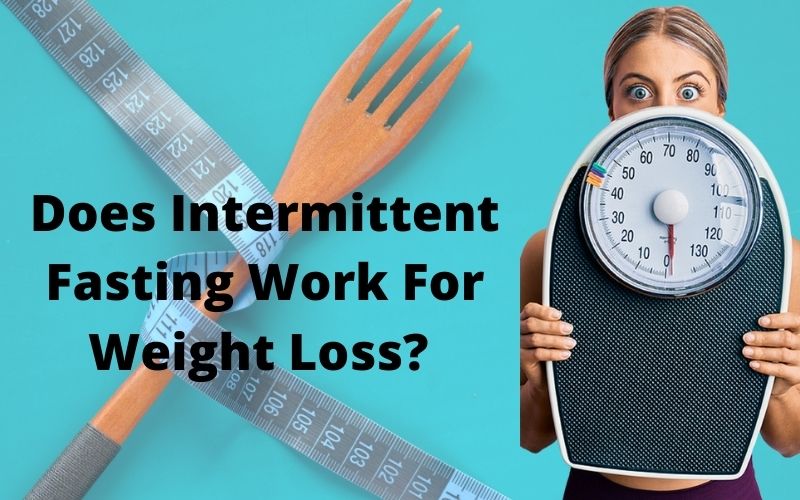Does intermittent fasting work for weight loss?
Intermittent fasting for weight loss is currently the new favorite dieting regime.
When dieting, people mainly focus on what to eat. But intermittent fasting is all about when you eat.
Notably, people only eat during a specific time in intermittent fasting.
Fasting for certain hours each day or just eating one meal a day can help your body fat burn.
Moreover, there are scientific shreds of evidence in its favor that points to some health benefits.
Well, it works.
But the human brain develops so many questions regarding it like does intermittent fasting work for obese or not and how does it work?
We will deal with some of the popular questions regarding what does intermittent fasting work for.
You will know if it’s right for you or not.
Get through this blog to learn more about intermittent fasting.
To begin with, let’s know…
Does Intermittent Fasting Work For Weight Loss?
Various studies have shown that intermittent fasting boosts weight loss through several mechanisms.
To elaborate, restricting the meals and snacks to a strict time may naturally decrease the calorie intake, which aids in weight loss.
This eating pattern reduces levels of insulin. This, as a result, levels up fat burning process to promote weight loss.
But does intermittent fasting work for belly fat? Of course, it does.
It successfully burns the fat around the belly.
Intermittent fasting may help your body to retain muscle mass more effectively than calorie restriction.
It decreases body weight up to 8% and reduces body fat by 16% approximately over 3 to 12 weeks.
Likewise, it’s helpful in obesity.
Until now you must have understood does intermittent fasting work for weight loss and fat burn or not.
Let’s get along with the next question that may arise.
Does Intermittent Fasting Work For Diabetics?
As intermittent fasting is helpful in weight loss, it automatically reduces the risk of diabetes.
To explain, intermittent fasting involves limiting your meals to a certain time.
It is followed by a fixed period of eating little or nothing.
Moreover, the fasting period can last anytime from a few hours to multiple days.
It may provide serious benefits to people with diabetes, such as weight loss.
However, too many adjustments in eating patterns can lead to swings in blood sugar levels and that can be dangerous.
Hence, it’s recommended not to change your eating pattern suddenly if you use insulins or medications. It can drop the blood sugar level too low.
A 2018 study, evaluated 3 people who used insulin with type 2 diabetes, fasted at least 3 times a week.
As a result, it was found that they do not need to use insulin any longer within a month. They also noticed an improvement in their BMI, HbA1c levels, and waist circumference.
Now you know how does intermittent fasting work for diabetics.
But does intermittent fasting work for every individual or only with specific persons?
Does Intermittent Fasting Work For Everyone?
We can’t say intermittent fasting works for all.
Many people skip their meals in intermittent fasting to fit their calorie intake within their eating window.
They skip their breakfasts and eat early dinner due to the fasting thing.
Notably, skipping meals may not be an ideal thing to do for everyone.
It may be beneficial for some people but others may not get any benefit from missing the first meal of the day.
Not to forget, breakfast is the most important meal of the day.
A healthy breakfast can help to boost metabolism, help burn calories, and energize you all day long.
But some people can do well by skipping this very important meal as they try to lose weight.
So, does intermittent fasting work for weight loss?
Yes, it does.
But does it work for everyone?
Not necessarily.
It’ll be better to listen to the body and act as per its need.
Conclusion
Through this blog, you got to know that does intermittent fasting work for weight loss, diabetes, or everyone or not.
This fasting is based on choosing a regular period to eat and fast.
You can also try eating only for eight hours each day and keep fast for the remaining time.
Allow the water and 0 calorie beverages during the times when you are not eating.
During your eating period try to eat as normally as you can.
You can’t lose weight if you take high-calorie junk food and fried items in your eating period.
Some people should avoid intermittent fasting. This includes:
- People underage
- pregnant or breastfeeding women
- people with blood sugar problems
- People with a history of eating disorders.
It has different effects on different people.
Talk to your doctor if you feel headaches, anxieties, nausea, or other symptoms after intermittent fasting.
If you have done intermittent fasting, don’t forget to share your views in the comment section below.
